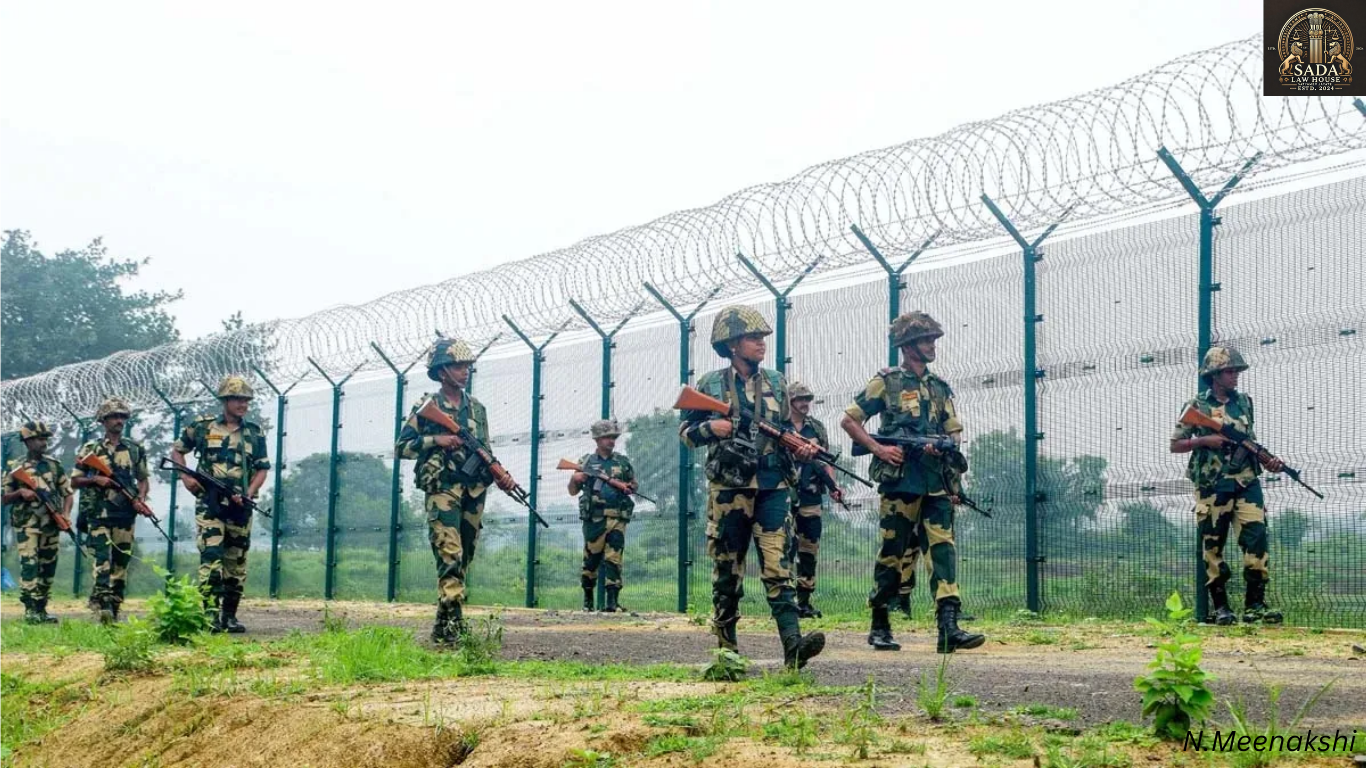India and Bangladesh Hold High-Level Border Security Talks to Tackle Migration, Smuggling, and Water-Sharing Disputes
- Shristi Singh
- 30 September 2025

Introduction
India and Bangladesh on Monday began a new round of high-level border security talks in New Delhi, addressing sensitive concerns such as illegal migration, cross-border smuggling, water-sharing disputes, and crimes along the 4,096-km-long international border. Officials from the Border Security Force (BSF) and Border Guard Bangladesh (BGB) emphasized greater cooperation, improved coordination, and reduced tensions, signaling renewed efforts to strengthen bilateral ties.
Background
The India-Bangladesh border is one of the most complex frontiers in South Asia. Spanning over 4,000 km, it cuts across rivers, villages, forests, and farmlands. Despite strong diplomatic ties, challenges persist over illegal migration, cattle and narcotics smuggling, border killings, and river water-sharing disputes.
Illegal migration has remained a politically charged issue in India, particularly in states like Assam and West Bengal. Smuggling, meanwhile, continues to fuel cross-border tensions. Another unresolved matter is the Teesta River water-sharing agreement, which has long eluded consensus despite repeated negotiations.
Annual BSF-BGB talks are designed to manage these operational and political issues. The September 2025 dialogue holds special significance as both governments face domestic pressures to ensure border security and economic cooperation.
Key Developments
The week-long talks were led by BSF Director General Nitin Agrawal and BGB Director General Maj. Gen. Mohammad Ashrafuzzaman Siddiqui. India’s Union Home Secretary Ajay Bhalla inaugurated the meeting, calling the border a “bridge of cooperation” rather than a barrier.
Key issues discussed:
Illegal Migration – India raised concerns and urged Bangladesh to tighten surveillance.
Cross-Border Smuggling – Plans to curb narcotics, arms, and cattle trafficking, including drone surveillance and night-vision tools.
Border Killings – Both sides reviewed civilian casualty incidents; India stressed a “zero-tolerance” policy.
River Water Sharing – Revival of the stalled Teesta water-sharing agreement was explored.
Joint Cooperation – Agreements on joint patrols, intelligence sharing, and training programs were reached.
Maj. Gen. Siddiqui reaffirmed Dhaka’s commitment to addressing India’s concerns, stressing that Bangladesh values its partnership with India for regional stability.
Issues
Illegal Migration: Political and security challenge in India’s northeast.
Smuggling: Undermines both trade and security.
Border Killings: A sensitive humanitarian and diplomatic concern.
Water Disputes: The Teesta issue impacts farmers on both sides.
External Influence: Rising Chinese presence in South Asia adds geopolitical urgency.
Current Status
Talks concluded in a cordial environment, with both countries reaffirming commitment to long-term cooperation. While concrete solutions on migration and water-sharing remain pending, enhanced joint patrols, technological surveillance, and a renewed dialogue on Teesta represent tangible progress.
Conclusion
The September 2025 India-Bangladesh border talks highlight both challenges and opportunities in managing one of South Asia’s most sensitive borders. By prioritizing cooperation over confrontation, the two nations signaled a shared commitment to stability, trade, and regional trust-building. While issues like migration and water-sharing require sustained negotiations, this dialogue underscores that both sides are determined to chart a path toward stronger bilateral partnership.






